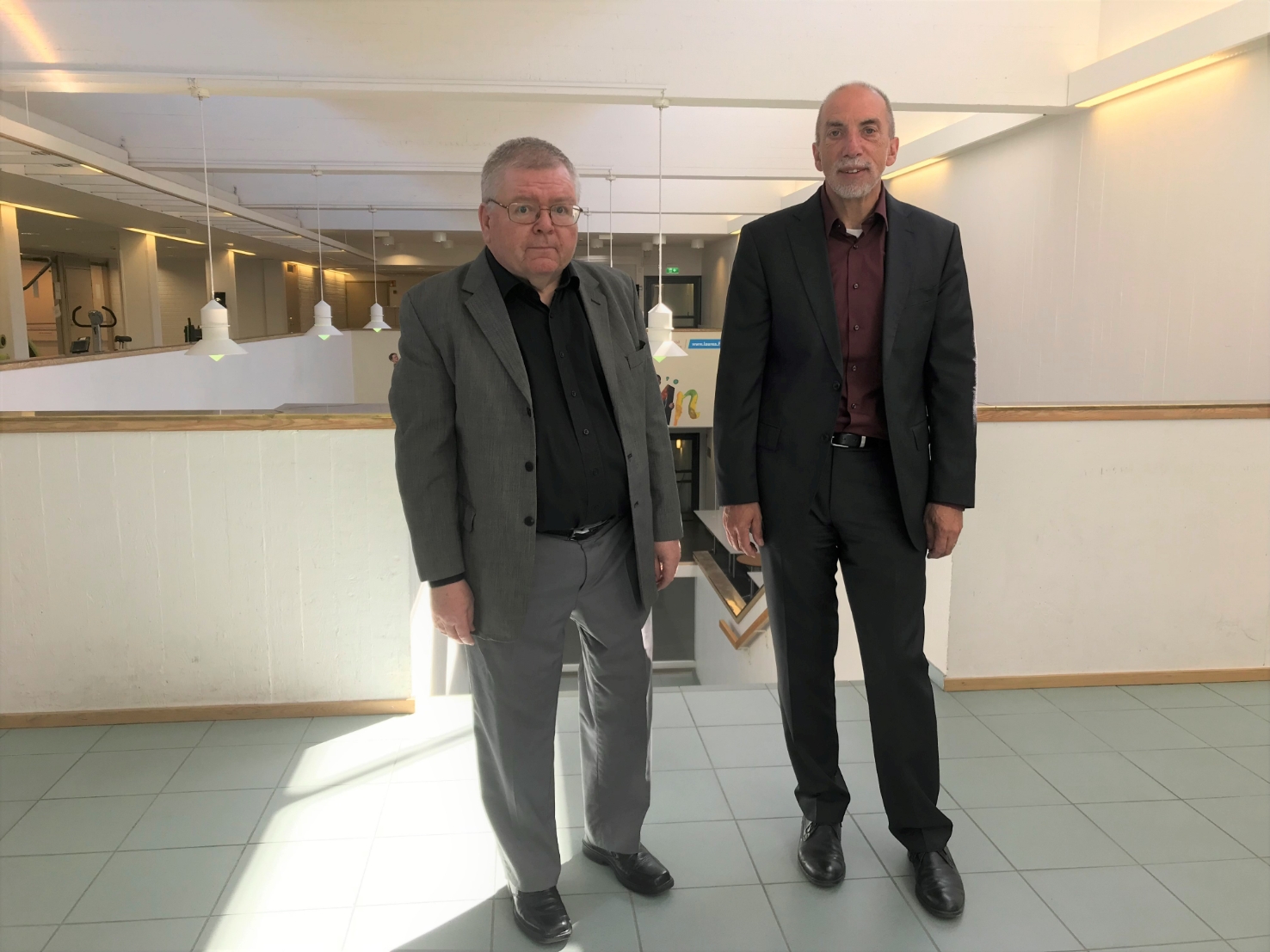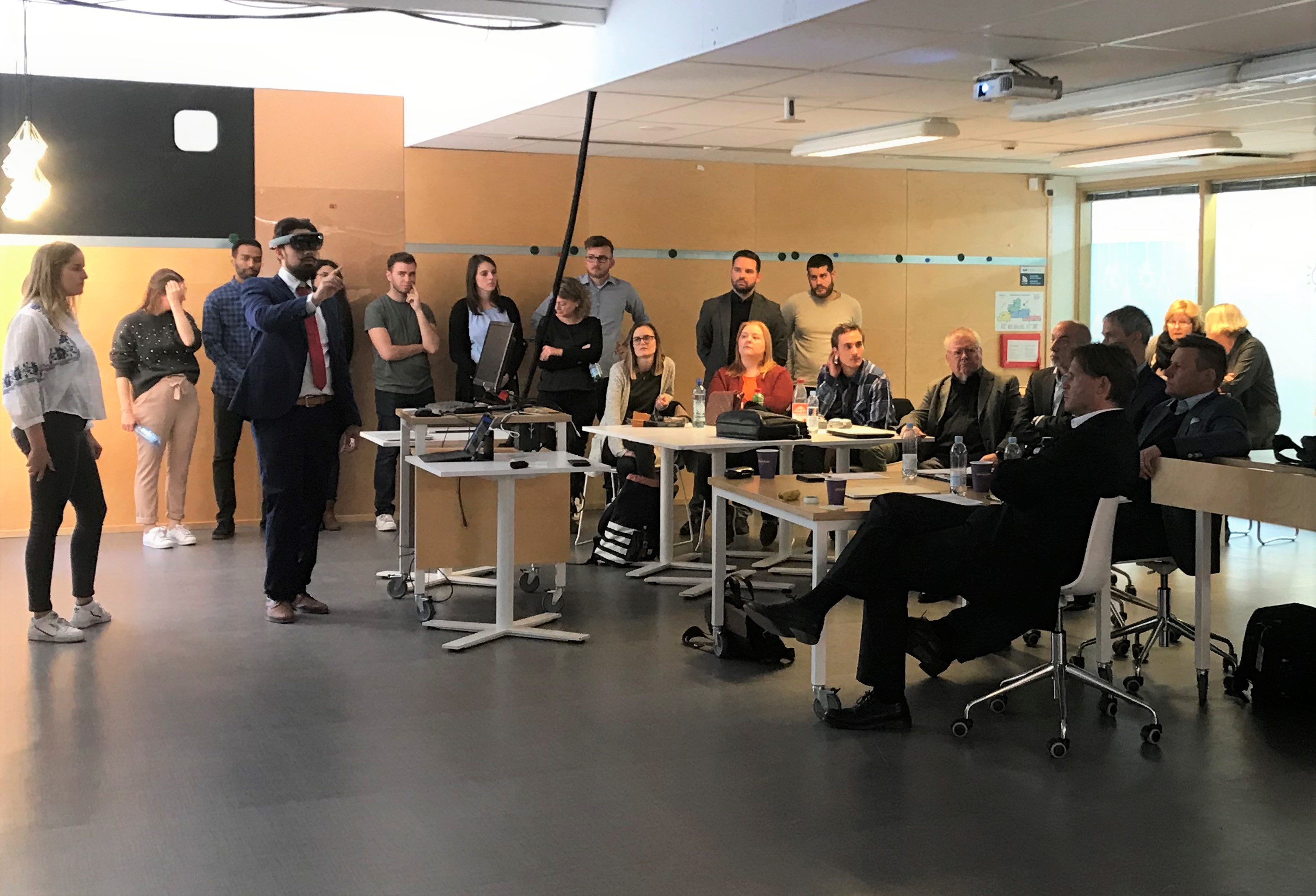Teacher exchange programmes. Building trust and an international network
For Lassi Tissari, senior lecturer in Business Management at Laurea UAS, participating in exchange programmes is a crucial part of his work. He has been doing this for the past 15 years.

Teacher exchange is one form of staff mobility at Laurea UAS. Lecturers visit partner institutions to teach, and Laurea receives teachers and professors from abroad. Teaching can be part of for example a jointly build study unit or an intensive, short term study programme. About 350 Laurea staff members go on exchanges to partner institutions, conferences, and projects every year.
Lassi Tissari, senior lecturer in Business Management, has been taking part in exchange programmes both short and long term since 2004. He has visited dozens of universities in Austria, France, Germany, as well as Mexico and Greece. He has been involved in preparing double degree programmes. A double degree means, that Laurea students study at Laurea UAS and a partner school abroad and receive two diplomas from both schools. Tissari as a lecturer has taught semester-long courses also at the partner institutions abroad, especially in Austria and Germany.
“The programmes are based on trust; when you meet face to face, have a good chat, you develop common interests, and you can start working together. It is not possible to achieve that with only virtual or email interaction. I participate in international weeks organized by partner universities, connect with people and develop trust. Visiting other universities and making contacts is a very important part of my job”, says Tissari.
From a bus trip in Mexico to a years-long collaboration
For more than five years now Tissari is collaborating with Professor Manfred Schorb from Hochschule Karlsruhe UAS. Together they have built a short term exchange course in a business simulation that also involves groups of students from both schools. Their collaboration started in a quite unexpected way.
“We have met on a bus in Mexico. We didn’t know each other, but we started talking and it happened that we were both taking part in the same seminar at a university there. So, we started to discuss topics; we talked about business simulation online and other common interests and this is how our collaboration has started. The rest is the history”, smiles Lassi Tissari.
Together they organize two week-long courses per semester. The first week takes part in Karlsruhe and the second in Espoo. Last week the professors and groups of students met on Leppävaara campus to finalize and present the projects. During the first meeting in Karlsruhe, teams got to know each other and built trust.
“We give the students short lectures, review some important and difficult stuff, for example, international taxation. In our programme, students run a company; they are like a board of directors, they have to make different kinds of decisions, covering all the functions of a company: marketing, R&D, financial issues, logistics and they compete with each other”, says Tissari.
For students – to gain international experience
When Lassi Tissari and Manfred Schorb started in 2013 with the first course in the business simulation it was a virtual game. One team consisted of all Finnish students from Laurea and the other all German students from Karlsruhe. But soon the teachers realized that this is not an actual international project and that they need to mix the teams. They tried this idea during the next semester. Still, it was only a virtual project and they noticed that the students miss a lot not working face-to-face. It didn’t build trust and a team spirit.
“After that, we decided we have to go a step further and organize an exchange course with our students. We wanted to meet twice to have an opening week and a final week. And between those two meetings the students could collaborate online”, explains Tissari.
Tissari and Schorb admit, that whenever they achieve satisfying results with their course, they immediately start to think about how to develop it further and improve it.

Asked, why he engages himself in the exchange courses, Tissari replies: “I am doing this because of my students, because I want to give them the possibility of a short-time exchange. This is a great opportunity for those students who for some reasons are not able to go for a semester-long exchange. This course can still give them the experience of an exchange programme, but they don’t have to change much in their life”, says Tissari.
To help the students financially, Laurea gives 50 euros per 1 credit. The business simulation project is a 5 credits course, so the students get 250 euros grant and the university in Karlsruhe covers the accommodation costs.
Although for some students it is at first difficult to decide to go for this kind of exchange after the course ends they are always highly satisfied. The course is very intensive, students are involved in serious tasks and learn a lot. They have to collaborate with their German partners, so they gain international experience.
“Such programmes require a lot of personal engagement and workload of supporting professors. We gain a lot from the projects for ourselves, for our students, and for our universities”, sums up Lassi Tissari.